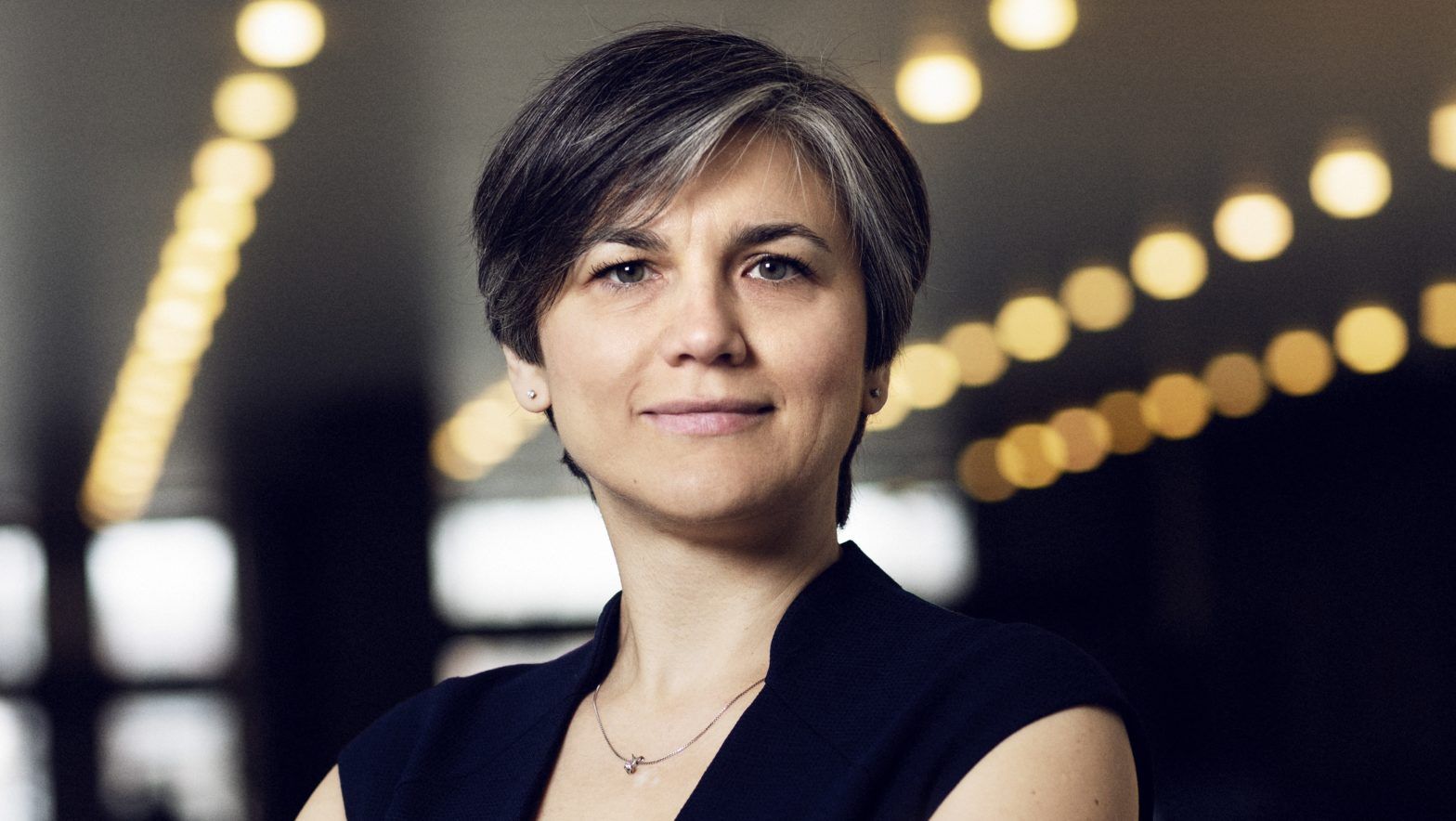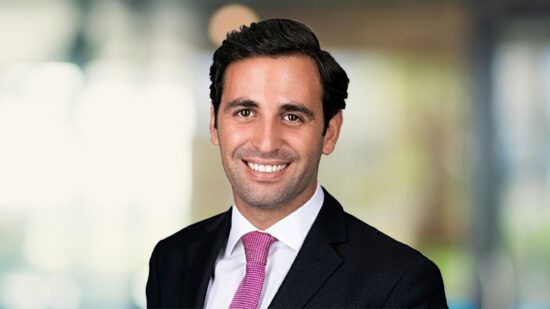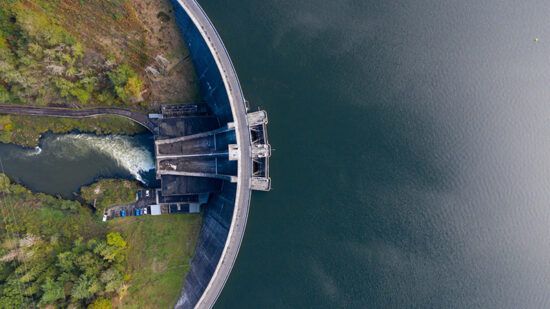“I like big challenges,” says Kristina Ganea Bertelsen, the new head of fund selection at Danske Bank.
Ganea Bertelsen joined Denmark’s largest lender two years ago following buy-side stints at Nordea and the British Airways pensions team. Her promotion to the top of the bank’s fund selection unit has been rapid. She manages a team of eight people, a portfolio of more than 100 funds and monitors all the bank’s liquid investment strategies, including equities, bonds and hedge funds.
“It’s hard to stay abreast of everything that is going on in the industry,” she admits.
“There are always new types of products coming onto the market. It gets broader and more nuanced every day. The universe is growing constantly. Our clients put their trust in us and we put our trust in somebody else. How can we make sure that we’ve checked for everything?”
Ganea Bertelsen’s thoughtful analysis of her new role is reflected in her measured responses to the key issues that currently face the industry. “It’s always about finding the right balance,” she says.
“Each type of product has a role to play,” she explains, on whether she prefers active or passive funds. “You have to look at what you want to achieve over what time horizon and at what cost?”
Her approach to fund selection is led by her need to probe, question and seek answers. Her team always tries to go “that little bit further” in its due diligence processes, she says.
“We want to know the fund manager’s consistency in producing alpha. I mean, where does it come from? What helps him or her make key decisions. How does that manifest itself in the performance numbers? What kind of biases does it bring with it?”
In terms of measuring performance, a fund manager’s track record always needs to be put into the context of their investment philosophy and process, she says.
“What are the managers trying to achieve? If it’s a very long-term approach, the track record should be looked at in a longer-term perspective.”
Likewise, a shorter-term, more trade-oriented strategy should be viewed through a different lens. “It always depends… what is the broader context?”
Sense of perspective
The issue of fees is, of course, a hot topic in the industry as exchange-traded funds with rock-bottom costs shake up traditional fund management. But like most issues, Ganea Bertelsen says a sense of perspective is required.
“Some products merit a high fee because their value-generation is extremely high and they are hard to come by,” she says. “Other products are commoditised.”
Likewise, her view on whether star managers or a team is preferable, is equally equivocal. “Most of the time it’s not a question of either this or that – it depends on the strategy and what you’re trying to achieve.
“Some investment processes lend themselves better to a sole final decision maker than to a consensus or team decision. However, one must look at broader risks of such a set up and consider what mitigating factors are in place.”
It depends, is her response to many issues. She does not have a favourite performance measuring statistic. “There are so many ways to slice and dice data,” she explains.
“You need to look behind the data. You need to understand where it comes from. You need to ask the right questions.”
Emotional intelligence
Meeting fund managers and their teams face-to-face is one way to make sure the right questions are being asked.
“It’s the only way to gain confidence in how the product or the strategy is run and to get an idea of the team and the organisation’s culture,” she says. “If you sense a stressful situation it’s a good reason to ask more questions. If people feel uncomfortable with an aspect of their work, it will probably affect the focus they put on portfolio management.”
Outside of Danske Bank, Ganea Bertelsen also works as a consultant at the Emotional Intelligence Academy in Manchester, which provides training programmes and consultancy services in behavioural analysis.
The study of emotional intelligence was popularised by the science writer Daniel Goleman in the 1990s and focuses on the ability to identify and manage your own emotions and the emotions of others.
“It does affect how I see the manager and the kind of signals you pick up,” Ganea Bertelsen says, explaining her interest in the discipline. “I end up noticing more on the behavioural side than somebody who doesn’t have that background. It doesn’t lead my questions, but it helps me interpret their answers.”
Ganea Bertelsen is also studying for a PhD in forensic psychology. “The doctorate is not directly related to my work but, of course, it forms part of my thinking. The market is led by human participants. It’s about understanding how people think and make decisions, and what guides their reactions,” she says.
Another one of her side projects is a fraud detection company that she founded last year in Copenhagen.
One characteristic that comes across is Ganea Bertelsen’s restless curiosity and constant need to probe and analyse – to take the world apart. “It’s important to feel that you are growing and developing as an individual, professionally and personally,” she explains.
“I constantly ask myself if I understand something sufficiently and what its implications are. Sometimes I don’t have an answer, but it feels a natural part of me, so I never wondered why it’s there.”

Seeking challenges
Ganea Bertelsen was born in Moldova during the Soviet era to Romanian parents. Her father was a communist idealist. Her mother was more liberal and pragmatic. “My parents always had challenging, philosophical discussions around the dinner table,” she recalls.
“Intellectual development has always been part of my everyday life. I guess, that’s also what has led me to constantly seek challenges.”
As a child in the former Soviet Union she recalls going to the shops with her mother and collecting rations of sugar and flour in exchange for food coupons. She admits that her formative experiences in the communist bloc have instilled in her a particularly tenacious desire to push herself.
“People had to persevere to survive – there was no choice.”
After moving to Denmark to study at Copenhagen Business School, Ganea Bertelsen chose to study Japanese because it was “the most challenging language” she could find. She also speaks Chinese and Russian.
Such an international background has spurred her interest in emerging markets. “There are so many factors to explore – culture, politics and economics – it’s not easy to synthesise such a huge amount of information and put it into a robust portfolio that can generate alpha consistently,” she explains. “I like the challenge.”
It’s a busy day-to-day schedule. To destress, Ganea Bertelsen finds time to meditate. “It gives you extra mental capacity,” she explains. “You manage your emotions and reactions better.”
For Ganea Bertelsen, no stone is left unturned in her efforts to fine tune her approach to the challenges her new role brings and achieve the best possible results. “It’s about finding the right balance,” she says.







